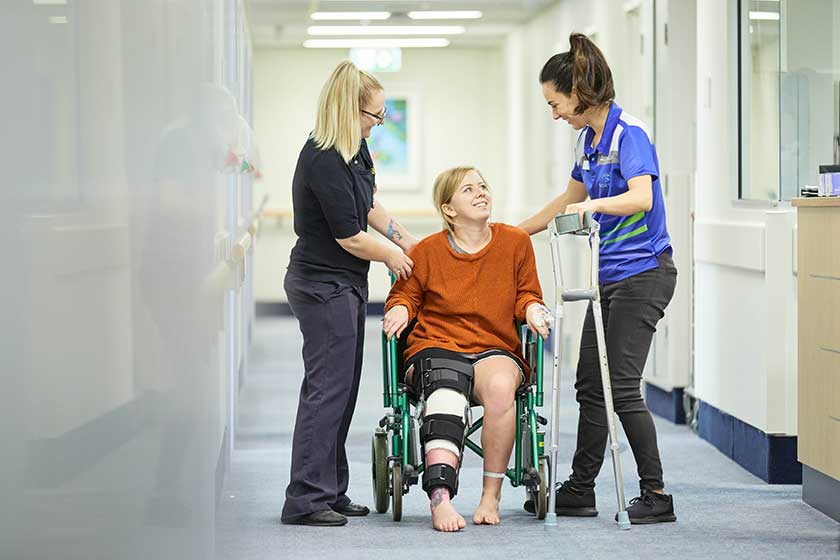1. Soft-tissue injuries
The most common injury that netball players experience are soft-tissue injuries.
Soft-tissue injuries are those that affect your muscles, ligaments or tendons. They often occur as a result of a sprain or strain and can be graded from one to three depending on their severity.
The most common site of soft-tissue injuries that occur when playing netball are those that affect the lower leg, i.e. the calf. This isn’t too surprising when you think about the stop/start nature of the game.
2. Broken bones
Unsurprisingly, the next most common injury is broken bones, which is very common across all sports.
Fractures that occur commonly in netball affect:
- Wrist and hand – 36%
- Elbow and forearm – 30%
- Knee and lower leg – 18%
- Ankle and foot – 7%
- Head – 6%
- Other (shoulder and upper arm, hip and thigh, truck) – 4%
3. Dislocation
Dislocations in netball are not uncommon.
While they may not sound quite as serious as the above two injury types, dislocations can be very painful particularly when the joint does not go back into place immediately.
Dislocations can occur in major joints such as knees and shoulders as well as fingers.
4. Intracranial injury
While head injuries are not very common in netball, they do occur in a small number of cases. If you experience a concussion as a result of a head injury, make sure you follow the concussion protocols. You can find out more at concussion in sport.
What are the common causes of netball injuries?
It might sound strange but overexertion is the main reason why injury occurs in netball.
This can range from overreaching or over stepping forcing your body into unnatural positions or from doing a lot of activity when your body is not warmed up or you haven’t been active in some time.
Falls, where you land on hard concrete or hard indoor surfaces, are also a common cause of injuries in netball.
Sometimes broken bones, and soft tissue injuries, need care from a specialist orthopaedic surgeon. You can find an orthopaedic surgeon, including specialist surgeons who are experts in sports injuries, who work at a St John of God Health Care hospital through our find a specialist search.
All data taken from the Australian Institute of Health and Welfare Australian sports injury hospitalisations report 2011/2012


